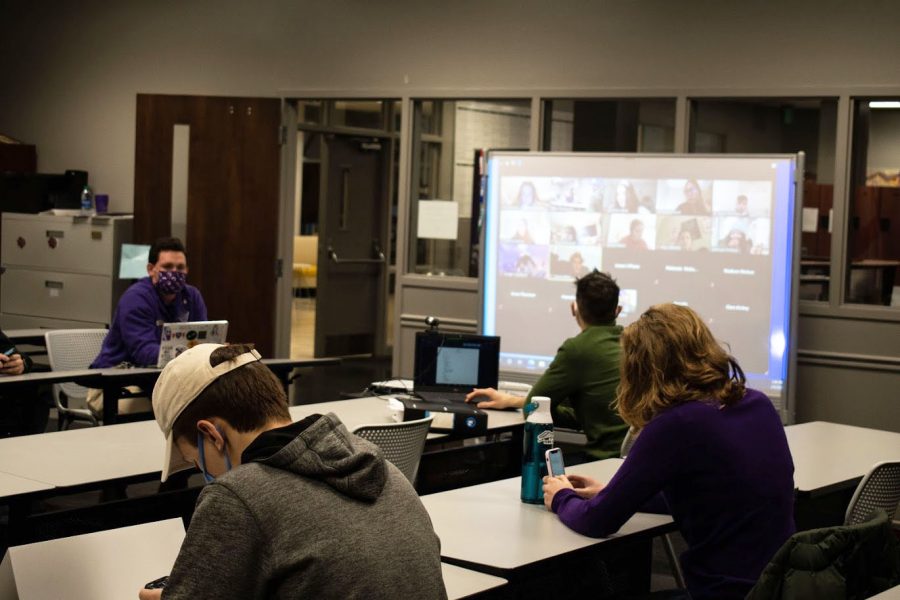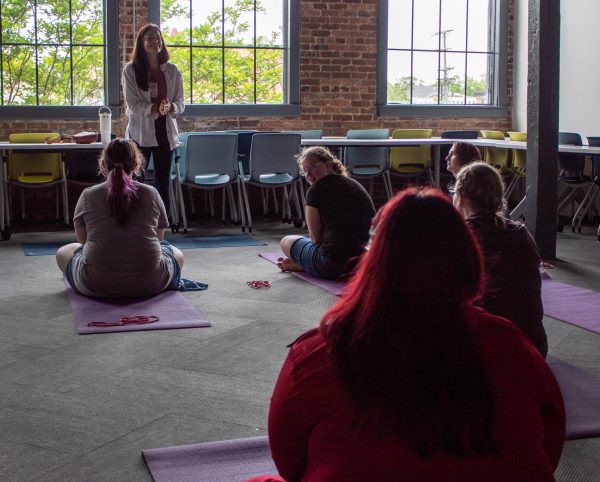SGA proposes constitution with united front
February 12, 2021
The University of North Alabama’s Student Government Association (SGA) introduces an amended constitution for students to vote on.
Tate Gooch, SGA President, and Carson Brite, Vice-President of Student Senate, are the main authors of these constitutional amendments. When discussing the revisions, they consulted with Director of Student Engagement Tyler Thompson, University Program Council (UPC) Advisor Becca Bush and student senate, where they encouraged debate.
If passed, there are two major changes coming forward on this revision: student senate will grant every academic college a proportional number of senators relative to the student body and UPC will become its own independent entity.
“I believe that the Student Government Association at UNA has almost maximized the use of its current system,” Gooch said. “With these revisions, I am addressing many of the desired areas of improvements within the Student Government Association.”
“UPC has done incredible work for the students at the University of North Alabama,” Gooch said. “With their new structure, which has been a great success, they have almost become an autonomous organization, so we collectively decided that their separation from SGA would allow for both organizations to continue to flourish.”
SGA currently has oversight over UPC’s manual and their budget; however, in separating the two, UPC will have more control over their own operations.
When constructing the amended constitution, Gooch said he looked to other successful student governments in similar institutions for guidance.
“An elected system will bring in more diversity to students and will allow students to directly represent their degree-granting college,” Gooch said. “This should allow for better insight to improving the academic experience of students at UNA and more specific improvements to campus infrastructure.”
These representatives of the student senate will be enrolled based on every 500 students based on enrollment numbers from the previous spring semester. A college will be granted an additional senate seat once they have an additional enrollment of at least 300 of their next 500 students.
As of right now, students interested in becoming a member of the senate only have to get a certain amount of signatures, go through an interview process and get an approval vote.
“One of the issues that we’ve run into recently [with the] signature requirement is that it’s pretty much the same 300 people that sign everybody’s paper,” Brite said. “Opening senate to every academic college only legitimizes SGA for good throughout the student body.”
If the proposed constitution passes, these representatives will have to be a full-time student, have a cumulative Grade Point Average (GPA) of 2.5 or higher and not serve on any other branch of SGA. In addition to this, they also have to present a verification of enrollment within their academic college, and a statement of purpose for their intended service to the student body.
Brite said if these representatives are elected with their degree-granting college, they are held more accountable because they have to answer to a direct constituent’s degree.
“It benefits the student body because it raises the general interest and awareness of student government,” Brite said. “As a member of the College of Arts and Sciences, I would be really paying a lot of attention to what my representatives were doing on behalf of our institution.”
The amended constitution also introduced the position of Diversity and Inclusion Advocate, which will be responsible for promoting a safe and welcoming campus and equitable opportunity for all students.
“I think that [some of the changes] are overdue,” Brite said.
Last year, Brite was Rules Chair when the proposed constitution amendment failed, and saw the rift in the student body’s response to it.
Brite said SGA did not expect to receive the negative feedback that they did.
“We were unprepared,” Brite said. “There was a lot of bad information that was spread about articles in the constitution and the results that it would lead to. [As Rules Chair,] I did not do a good job of ensuring that the misinformation was pitted back up against the truth.”
After receiving this negative feedback, SGA has worked to refocus and resolve any gray areas students may have.
“We came back to the table and we are presenting what I believe is the best possible solution to the problems that we are facing right now as in SGA,” Brite said. “These changes are going to be presented in a much clearer, more concise manner.”
However, another contribution to the constitution failing last year was the state of SGA.
Brite said there was a lot of division, and a lot of internal struggles and disagreements about every issue they approached.
“But this year we have been able to do a full 180,” Brite said. “We operate as a team and everything has run very efficiently this year. So, I think that all of those things that we experienced last year has only helped us improve this year. We are going to ensure that all of SGA is approaching it with a united front.”
If approved by students in the election, these changes will go into effect in Fall 2021.













